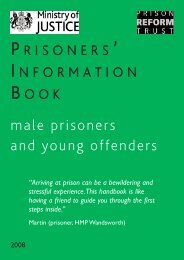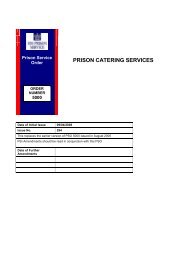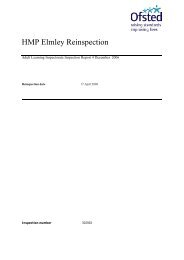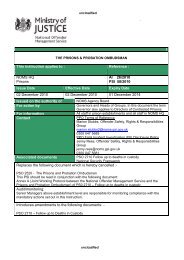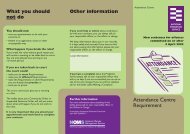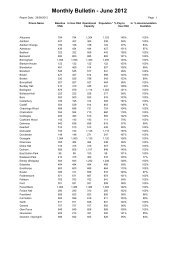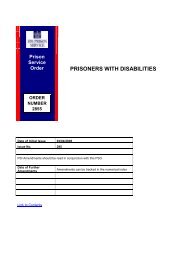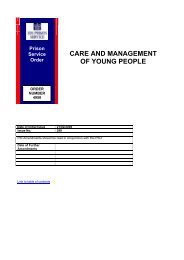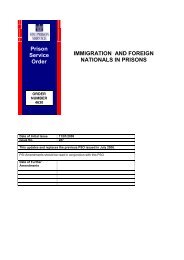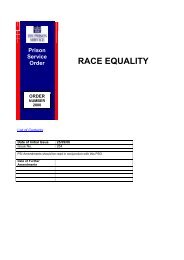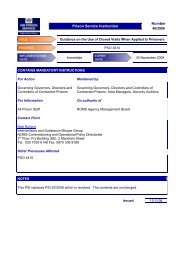PSI 2011-049 - Inside Time
PSI 2011-049 - Inside Time
PSI 2011-049 - Inside Time
You also want an ePaper? Increase the reach of your titles
YUMPU automatically turns print PDFs into web optimized ePapers that Google loves.
UNCLASSIFIED PAGE 17contact has been made the matter should be drawn to the attention of the police as amatter of urgency.12.8 Prisoners will only be allowed to telephone victims of their offences in the followingcircumstances:(a he or she is a close relative, as defined in paragraph 2.23;(b)(c)the victim has first approached the prisoner;the Governor considers that the call would not cause undue distress to the victim.12.9 Requests by the victims of harassment offences where there is a court order or injunctionpreventing contact should ordinarily be refused on the grounds that approval would not onlyput the service at odds with the Courts if restraining orders or injunctions are in force, butcould also jeopardise the safety of themselves and others. Should the victim continue toexpress a wish to have telephone contact with the offender, the victim should be advised bymembers of staff that they or their legal advisors should approach the Courts for a varianceof the court order. It is the responsibility of the victim and not the establishment to makethis approach.12.10 If a member of the public requests in writing that a prisoner should not be allowed tocontact him or her, the prisoner’s phone account must be amended to barthe prisoner from telephoning the individual.. Where the number has been removed theprisoner should be informed. Consideration should be given to locally bar the number toprevent other prisoners from adding it to their PIN account on behalf of the prisoner.Access to the Internet and social networking sites12.11 Prisoners must not be permitted to access or contribute via a third party to any socialnetworking site while in custody. The restrictions on correspondence equally apply tocommunication while on temporary release from custody and, where appropriate, licencesmust reflect this. Prisoners do not have access to the Internet other than for educational orresettlement purposes (and only then under strict supervision) but some prisoners havemanaged to gain unauthorised access to social networking sites to update their profiles.This has been done by using illicit mobile phones, via a third party – e.g. a letter to a friendis posted on their Facebook profile, or accessing the Internet while on release on temporarylicence. There are instances when prisoners have legitimate reasons to access the Internetwhen on temporary licence (this may be in cases where a prisoner is undertaking a periodof work experience with an employer who may use the Internet as a legitimate part of theirbusiness) but this must never involve contact with people to whom they present a risk ofharm or with victims of their offence.12.12 Concerns about a prisoner accessing or up-dating an active profile on Facebook should bereported to the security manager to consider what action to take. If it is believed that anillicit mobile telephone is being used, every effort should be made to recover it. It a prisoneris passing material by post his mail should be monitored. Where a prison can identify anaccount connected to a serving prisoner, and there are risks to victims or witnesses, thematter should be referred to Patrick Hunter (Patrick.Hunter@noms.gsi.gov.uk) in OffenderSafety, Rights & Responsibilities (OSRR). Only OSRR has authority to liaise with socialnetworking sites and to seek the removal of unauthorised sites.<strong>PSI</strong> 49/<strong>2011</strong> UNCLASSIFIED ISSUE DATE 26/09/<strong>2011</strong>





